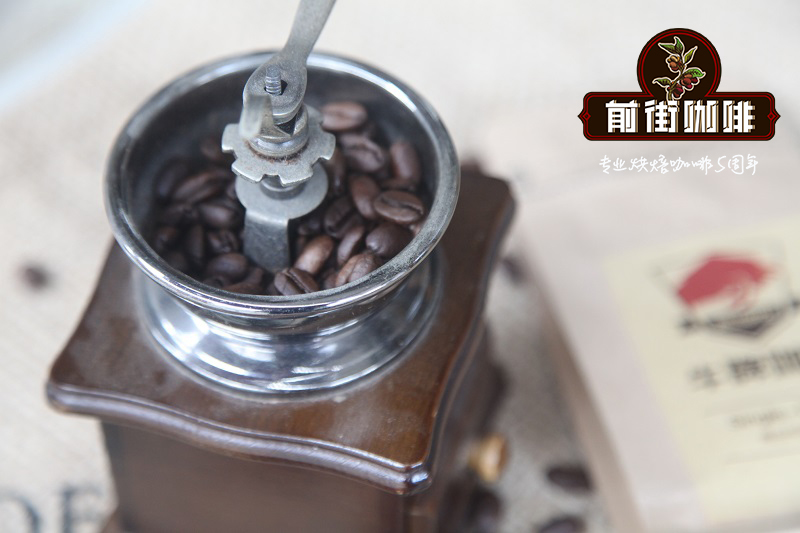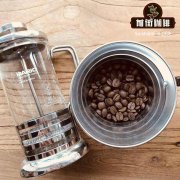Indonesian Socridi Cooperative Coffee introduction what are the varieties of coffee grown in Indonesia

In Indonesia, 90 per cent of coffee belongs to Robusta, probably as a result of the devastating 19th-century coffee leaf rust. But in Toraja producing areas, 95% of coffee belongs to Arabica.
The main coffee variety in Sulawesi Toraja producing area is S795 (also known as Jember), which belongs to Arabica race and has strong resistance to leaf rust and outstanding sweetness (maple sugar male syrup/ brown sugar flavor).
Indonesia Socridi Cooperative Indonesia Solok Radjo
The producing area of the Socridi Cooperative (Solok Radjo) is located in the Solok district of Nagari Aie Dingin,Nagari Aie Dingin, which is located at the intersection of the Kerinci area connecting Solok and Jambi. The Arabica coffee here is grown at an altitude of 1400-1600m. The soil is weakly cultivated soil and ash soil. This soil characteristic comes from the surrounding active volcanoes, such as the Kerinci volcano, so the soil contains a lot of aluminite. It has better ability to preserve fertilizer and water. The climate belongs to the dry and early climate, the average annual rainfall is about 2400mm, the dry and wet season is not obvious, but the dry season is mainly between June and September, and the main varieties planted are sigararutang (65%), andung sari (15%), ateng (6%), kartica (10%) and other varieties that are difficult to identify. Refreshing acidity, sweetness and pleasant spice flavor are the main features of its cooperative coffee, and its high quality is very popular in the market.
The Socridi Cooperative (Solok Radjo), founded in 2014, has a membership of nearly 890 small coffee farmers. Farmers have set up the cooperative to change the coffee trade system in order to solve the problem that the price of coffee is too low due to the long trading chain of coffee beans. In order to realize the potential social and economic impact of the coffee supply chain, begin to rebuild forests and coffee cultivation in the Solok and Kerinci areas:
1. Replant the forest to solve the impact of logging and soil erosion on the forest in the past
two。 Establish an agricultural system to protect the independence of local forests and economies
3. Use the division of land area, responsibility and sustainability to help local communities integrate.
4. Provide good coffee seeds for farmers-distribute seeds to farmers free of charge during the rainy season
5. Consultation, guidance and supervision of coffee planting management-Solok Radjo provides training guidance for members by 4 experts, agroforestry model for growing coffee, planning for new planting, and calculation for the cultivation of soil microorganisms in chemical and organic fertilizers
6. Stable supply of quality coffee beans to business partners through a transparent and fair supply chain
In order to establish valid production data, starting in 2018 (expected to be completed in 2023), the Sokredi Cooperative (Solok Radjo), in partnership with CommCare, began to establish Solok-Kerinci Coffee Map data tracking-data tracking helps in production planning, crop forecasting, fertilizer calculation, management and pest monitoring. This project has created a transparency that did not exist in Indonesia's coffee supply chain in the past. In the same year, the Socridi Cooperative (Solok Radjo) established a sample park on land that is not currently used for production, using the sample park to provide learning about the best way to grow and cultivate coffee, which is also the source of high-quality seeds.
In the treatment, in order to maintain the stability of drying temperature to ensure the quality of coffee, Solok Radjo uses ultraviolet dryer UV (Ultra Violet) dryers to control the temperature at 35-50 degrees C, so that the water content of coffee can be kept at 12%.
Through a series of efforts, Solok Radjo finally succeeded in rekindling local enthusiasm for coffee cultivation and forest protection in 2019, taking sustainable agricultural forest development as the orientation of coffee cultivation and with the slogan "Coffee is for the people and the Earth".
Important Notice :
前街咖啡 FrontStreet Coffee has moved to new addredd:
FrontStreet Coffee Address: 315,Donghua East Road,GuangZhou
Tel:020 38364473
- Prev

What are the characteristics of Peruvian coffee Peru? Peruvian coffee cooperative introduces Peruvian coffee flavor
Peru is dominated by small farmers. Each small farmer has less than two hectares of land and produces about 3000 pounds of coffee per hectare. Peruvian coffee is planted in high altitude areas, mainly Arabica varieties. Under the slow mature growth, the density of beans here is higher, and the flavor changes a lot. Among them, the highest altitude, Peru's most important coffee producing area is: cha Mayou C.
- Next

How do you make coffee with ice water? The way of making iced coffee at home
Professional coffee knowledge exchange more coffee bean information Please follow the coffee workshop (Wechat official account cafe_style) in summer people like to drink iced coffee, but in fact, the best iced coffee is not the frozen coffee made outside, but the "cold coffee" brewed with cold boiled water for more than ten hours! In addition to being more fragrant than ordinary hot coffee, it can also force coffee out of coffee.
Related
- Detailed explanation of Jadeite planting Land in Panamanian Jadeite Manor introduction to the grading system of Jadeite competitive bidding, Red bid, Green bid and Rose Summer
- Story of Coffee planting in Brenka region of Costa Rica Stonehenge Manor anaerobic heavy honey treatment of flavor mouth
- What's on the barrel of Blue Mountain Coffee beans?
- Can American coffee also pull flowers? How to use hot American style to pull out a good-looking pattern?
- Can you make a cold extract with coffee beans? What is the right proportion for cold-extracted coffee formula?
- Indonesian PWN Gold Mandrine Coffee Origin Features Flavor How to Chong? Mandolin coffee is American.
- A brief introduction to the flavor characteristics of Brazilian yellow bourbon coffee beans
- What is the effect of different water quality on the flavor of cold-extracted coffee? What kind of water is best for brewing coffee?
- Why do you think of Rose Summer whenever you mention Panamanian coffee?
- Introduction to the characteristics of authentic blue mountain coffee bean producing areas? What is the CIB Coffee Authority in Jamaica?

